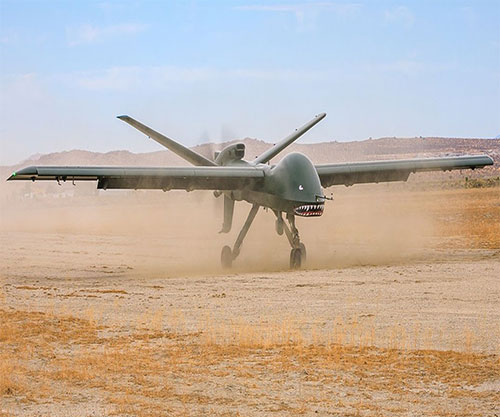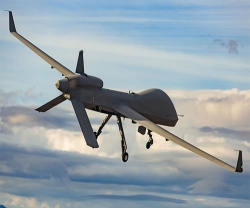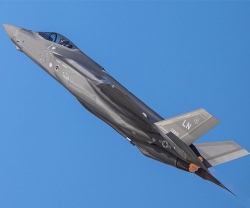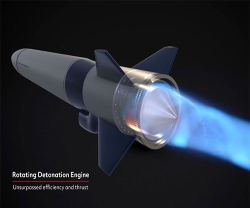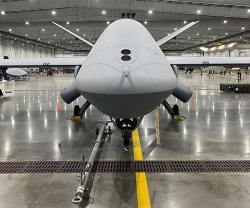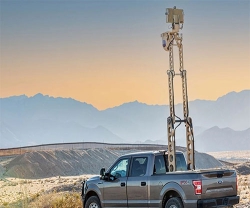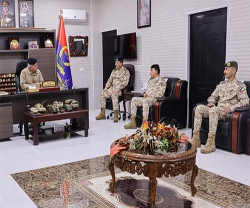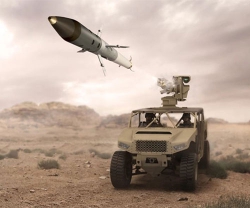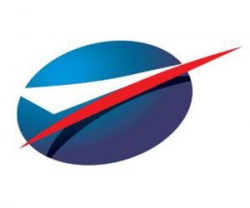On August 1, 2023, General Atomics Aeronautical Systems, Inc. (GA-ASI) completed multiple successful takeoffs and landings with its Mojave Unmanned Aircraft System (UAS) on a dirt strip near El Mirage, California.
The ability to take off and land on unimproved surfaces demonstrates Mojave’s departure from traditional fixed-wing aircraft’s dependence on prepared runways. This new capability provides greater versatility and allows the aircraft to operate in areas previously deemed unsuitable for UAS operations.
“Being able to execute missions in austere locations with runway independence opens the operational envelope for commanders across all services and geographic locations,” said GA-ASI President David R. Alexander.
“Mojave can do this while retaining significant advantages in endurance and persistence over Vertical Takeoff and Landing (VTOL) and manned aircraft,” he added.
The flight tests were the first-ever Short Takeoff and Landing (STOL) on a dirt surface for Mojave. Takeoffs were performed in as little as 586 feet; and short landings were completed in as little as 335 feet. The tests were primarily focused on gathering terrain feedback using Mojave, not achieving the shortest distances possible.
Tracing its lineage from the MQ-1C Gray Eagle and MQ-9 Reaper, Mojave is a technical demonstrator with STOL capability, making it a versatile expeditionary UAS. Adhering to Modular Open System Approach (MOSA) principles, Mojave leverages the modernized avionics, data links, sensor integration, and laptop ground control station of GA-ASI’s Gray Eagle 25M program.
These features - along with Mojave’s enlarged wings with high-lift devices, combat-proven 450-HP turbine engine, and ruggedized landing gear - make it ideal for semi-improved surfaces with a small ground support footprint.
Mojave provides options for forward-basing operations without the need for typical airport runways or infrastructure, so it can be rapidly deployed from and recovered to non-traditional discrete locations. To extend operational reach, Mojave can fit into a C-130 and be rapidly assembled and employed. These innovations make Mojave the perfect UAS to perform Reconnaissance, Surveillance, and Target Acquisition (RSTA), attack, and contested logistics support missions.
Designed to be rapidly deployable and expeditionary, Mojave’s tailored features include a ruggedized airframe that enables operations in austere conditions and weatherization that enables flight in wider environmental windows. Robust wing storage means it can carry up to 16 Hellfire or equivalent missiles, assorted munitions, Launched Effects (LEs), or logistical resupply pods. Mojave can provide greater operational flexibility while still being equipped with a multi-sensor suite that includes Electro-Optical/Infrared (EO/IR), Synthetic Aperture Radar/Ground Moving Target Indicator (SAR/GMTI), Electronic Intelligence (ELINT), and Signals Intelligence (SIGINT) to support land or maritime missions throughout Joint All-Domain Operations (JADO).
General Atomics Aeronautical Systems, Inc. (GA-ASI), an affiliate of General Atomics, is a leading designer and manufacturer of proven, reliable Remotely Piloted Aircraft (RPA) systems, radars, and electro-optic and related mission systems, including the Predator® RPA series and the Lynx® Multi-mode Radar.
With more than eight million flight hours, GA-ASI provides long-endurance, mission-capable aircraft with integrated sensor and data link systems required to deliver persistent situational awareness. The company also produces a variety of sensor control/image analysis software, offers pilot training and support services, and develops meta-material antennas.

